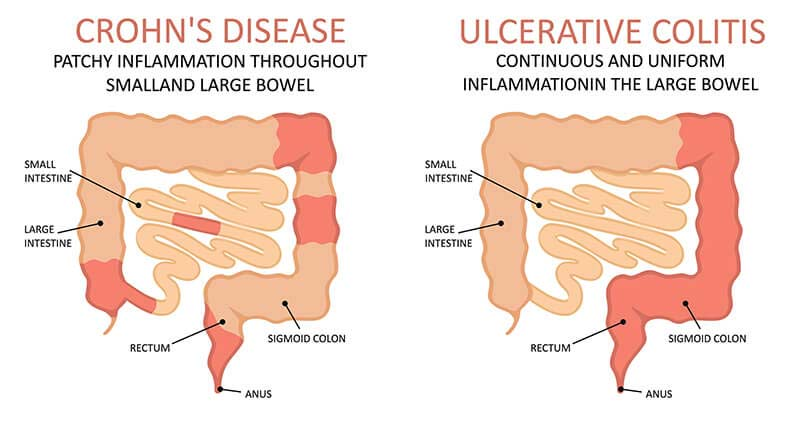Crohn’s Disease: Chronic Digestive Condition and Management
Why in the news?
Recent advancements in biologic treatments and dietary strategies have sparked renewed focus on improving Crohn’s Disease management and enhancing patient outcomes globally.
Understanding Crohn’s Disease:
- Crohn’s Disease is a chronic inflammatory bowel disease (IBD) primarily affecting the digestive tract, particularly the small intestine.
- The condition stems from an abnormal immune response, genetic predisposition, and environmental factors, though its exact cause remains unknown.
- It is characterized by varying degrees of inflammation within the digestive system.
Symptoms of Crohn’s Disease:
- Persistent diarrhea and abdominal cramping are hallmark symptoms.
- Fatigue, anemia, and reduced appetite often result in significant weight loss.
- The severity of symptoms can vary, with some individuals experiencing frequent flare-ups while others remain asymptomatic for extended periods.
Treatment and Management:
- Although Crohn’s Disease has no cure, treatments focus on symptom management and complication prevention.
- Therapies include anti-inflammatory drugs, immune system suppressors, and biologic treatments like JAK inhibitors.
- Dietary adjustments are crucial, and in severe cases, surgery may be required.
- Early diagnosis combined with effective treatment can greatly enhance patients’ quality of life.
About Crohn’s Disease:
- A type of inflammatory bowel disease (IBD) causing chronic inflammation in the digestive tract.
- Likely results from an abnormal immune response; exact cause unclear.
- Commonly affects the small intestine but varies among individuals.
- Symptoms
- Diarrhea, abdominal cramping, anemia, reduced appetite, and weight loss.
- Treatment
- No cure; therapies include medications and dietary adjustments to reduce symptoms.
Sources Referred:
PIB, The Hindu, Indian Express, Hindustan Times




